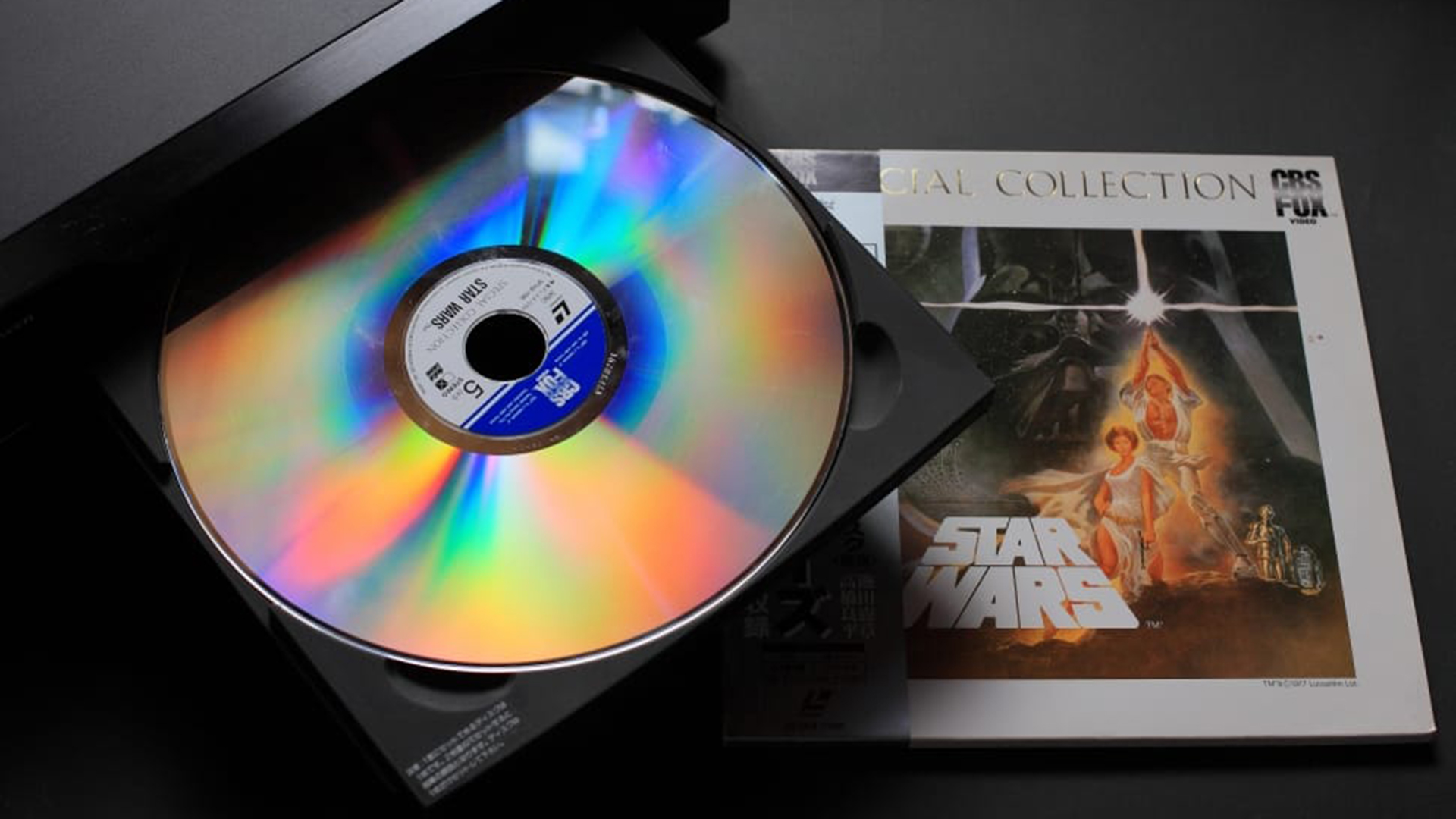4K Blu-ray vs streaming, which is best? It's a question that's been asked for quite some time and the answer keeps changing as services improve. So should you shell out on one of the best Blu-ray players or is your money better spent subscribing to one of the best movie streaming sites?
There are quite a few factors to consider when deciding if solid state media is still worth investing in. Picture quality, sound quality, convenience and price are just some of those key areas you'll want to think about.
Thankfully we've done that all for you below so you can decide if there's more to 4K Blu-ray than just that satisfying feeling of loading a disc into a player as you excitedly wait to watch your latest movie purchase.

4K Blu-ray vs streaming - Picture quality
The most important and clear difference between 4K Blu-ray discs and streaming in high-quality has to be picture quality. Both services now offer 4K meaning you get a picture resolution of 3840 x 2160 which is going to push your 4K TV to its limit for image resolution. So what's the difference?
The difference comes in based on the amount of data sent to the TV. The amount of data sent to your TV each second is called bitrate and this varies since streaming services must heavily compress data so that it can be passed over your internet and WiFi connections.
Since internet speeds vary, even on the most speedy of lines, streaming services can drop data from frames to ensure your movie keeps playing seamlessly, even if at a slightly lower quality. Sure, it's not going to mean a loading screen or even a granular image like in the early days, but it can drop slightly. What do I care if I don't even notice? You might ask. We'd argue that just because the quality drop is subtle doesn't mean you should settle for a less immersive experience than you could have. This is where 4K Blu-ray comes in.
A top-end streaming service like Netflix typically streams at a bitrate of around 17Mbps. This drops as not only your internet connection varies but as demand goes up. With more people at home in 2020 the bitrate of Netflix dropped globally as a result of demand. Apple offers a higher bitrate with its Apple TV service, which tops out at 40Mbps. By comparison 4K Blu-ray discs run up to 128Mbps.

There is one exception to streaming, in the form of Sony Bravia Core which is a Sony movie streaming platform that offers 80Mbps. However it's limited only to Sony Bravia Core 2021 TVs, for now.
Another area to consider is HDR. Both streaming services and 4K Blu-ray offer HDR but the type varies. HDR10 is pretty much available on all discs and streaming services but this doesn't have the frame-by-frame adaptation tech that HDR10+ and Dolby Vision offer. Amazon Prime Video supports HDR10+ (10-bit color) while Netflix and Disney Plus use Dolby Vision (12-bit color). 4K Blu-ray varies but there are lots of titles with Dolby Vision and plenty with HDR10+.
Lastly there is frame rate, with 4K Blu-ray able to support up to 60fps where most streaming services are still limited to 30fps. Of course we say limited, but in reality as broadband connections get better and the streaming compression becomes smarter this will only get better and better with no real limits.
Winner: 4K Blu-ray
4K Blu-ray vs streaming - Sound quality
Audio quality is an area that varies across 4K Blu-ray and streaming services. While Netflix now offers Dolby Atmos sound and some 4K Blu-rays will do the same, for DTS:X you'll need to go solid state. While there are discs with Dolby Atmos and discs with DTS:X, you won't find both on the same disc, it's one or the other. At time of publishing all streaming services only offer Dolby Atmos.
While Dolby Atmos requires upfiring speakers to bounce audio off the ceiling, or ceiling mounted speakers, for an immersive, above-you-sound experience, DTS:X does not. This uses virtual sound delivery and software smarts to take advantage of your current sound system to offer immersive virtual surround. DTS:X also uses a higher bitrate meaning the quality of the sound is better.
Whichever option suits you better, be sure that you have the right sound system to support that audio setup if you want to get the best out of your audio feed.

One thing that makes DTS:X really attractive, and earns 4K Blu-ray another point, is the ability to adjust virtual objects. This means you can pick out voices and turn that up, for example, allowing you to follow dialogue more clearly even when in an action packed and noisy scene.
Winner: 4K Blu-ray
4K Blu-ray vs streaming - Convenience
This is a tough one as streaming can be very convenient. If you've already got a service paid for and installed, it can be as easy as a single button click and you're browsing the latest movie library. This is where streaming wins out and many people will gladly take a hit on picture and audio quality for its convenience.
However, since you can buy 4K Blu-ray online and have it arrive at your door, this is also easier than ever. Pop the disc in the drive and you're up and running right away with the highest quality end result. Yes, you have to store those discs and indeed it does require getting out of your seat to load in and remove that disc – but the ritual of that can be part of the movie watching magic.
Winner: Streaming
4K Blu-ray vs streaming - Price
Some 4K Blu-ray discs will cost you as much as an entire month of subscription for a streaming service like Netflix, which gets you way more content. Then, of course, you also need to factor in the purchase of the 4K Blu-ray player itself. You might not if you already own a console with a drive built in, like a PlayStation 5 or Xbox Series X.

One of the positives about investing in solid state discs is that you then own that movie and can watch it whenever you like. Streaming services generally have films coming and going as licenses allow. That means you might want to watch a certain movie but won't be able to since it's not on your streaming service at that time. Or, if you paid to buy a digital download of a movie, you may not own the rights forever so could lose that too.
For 4K Blu-ray purchases you can use the digital bridge feature, which allows you to copy the movie to a drive, phone or tablet as part of your purchase. Most also have digital versions available for you to stream on any device, whenever you want.
Winner: Streaming
4K Blu-ray vs streaming - Which should you buy?
Across the four categories we have a tie, 4K Blu-ray gets two points for image and sound quality, while streaming gets dual points for convenience and price. So, right now, it comes down to how you like to view your movies.
If you can appreciate the highest image and sound quality – want to take full advantage of your home cinema setup, and enjoy the ritual of playing discs – then 4K Blu-ray is the way to go.
If you can forgo the best quality and still get into your movies, with a streaming service, then you could stand to save money and access everything more easily.

